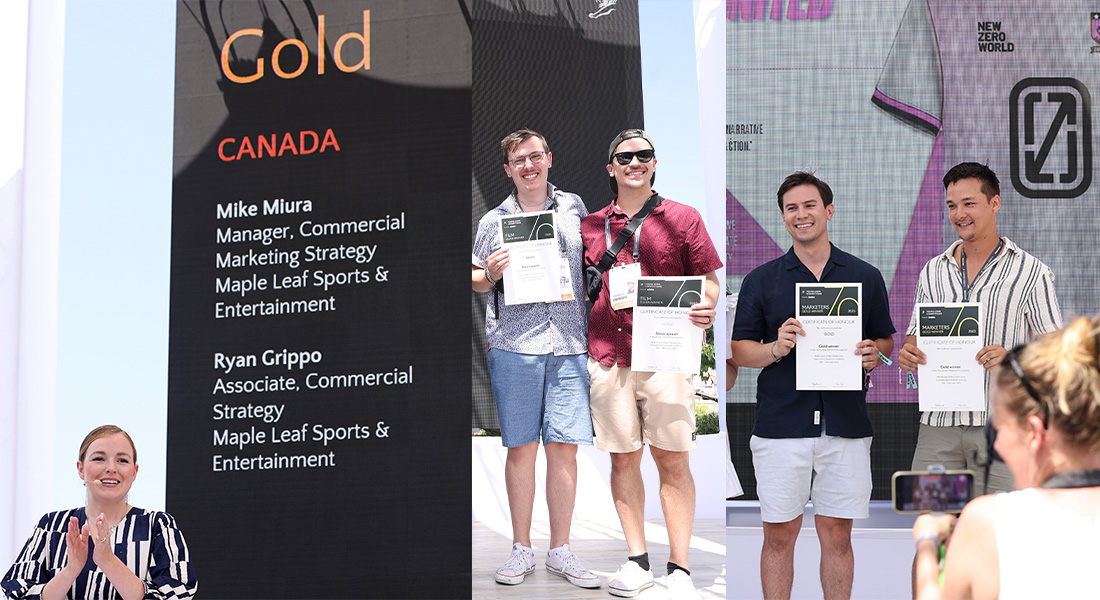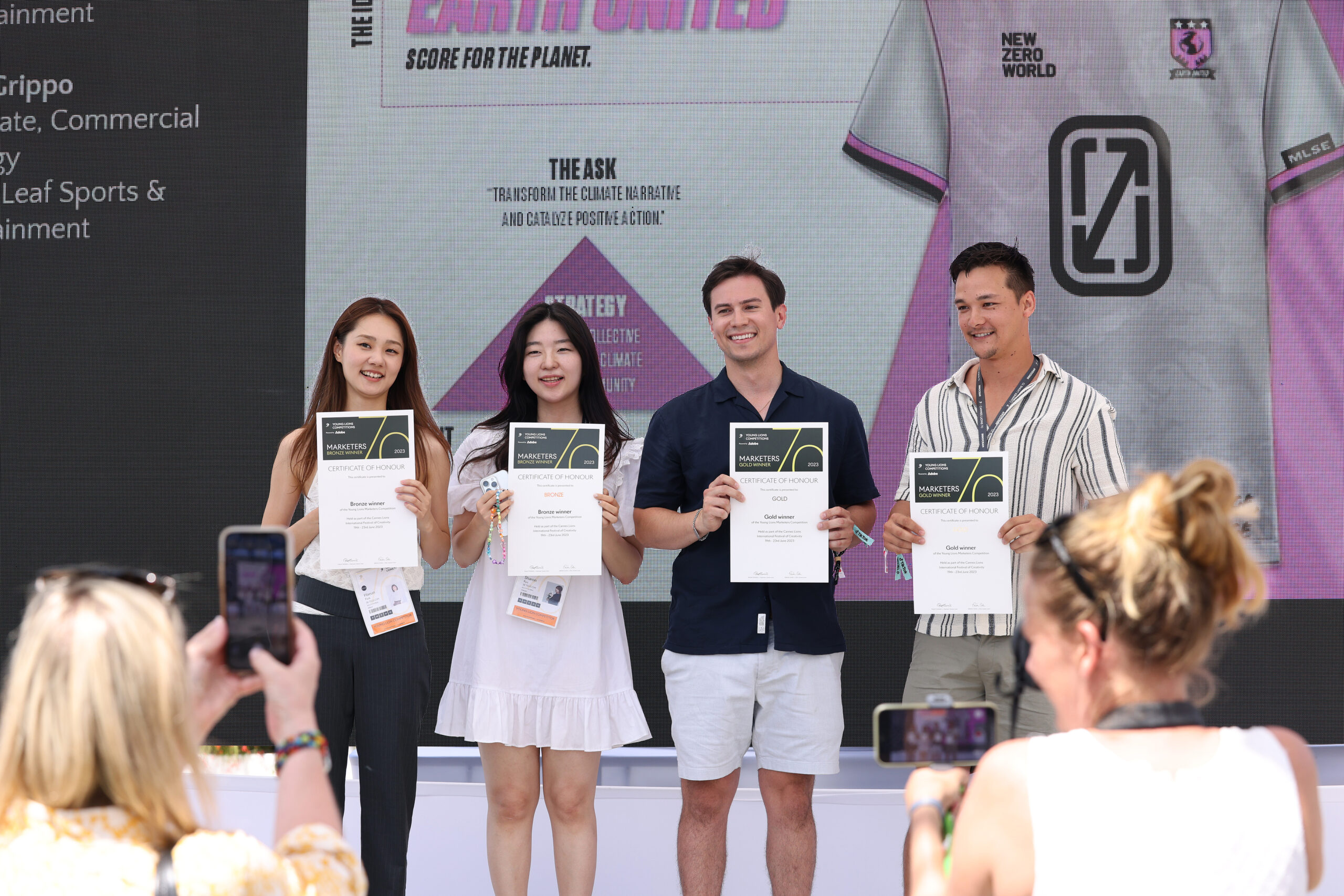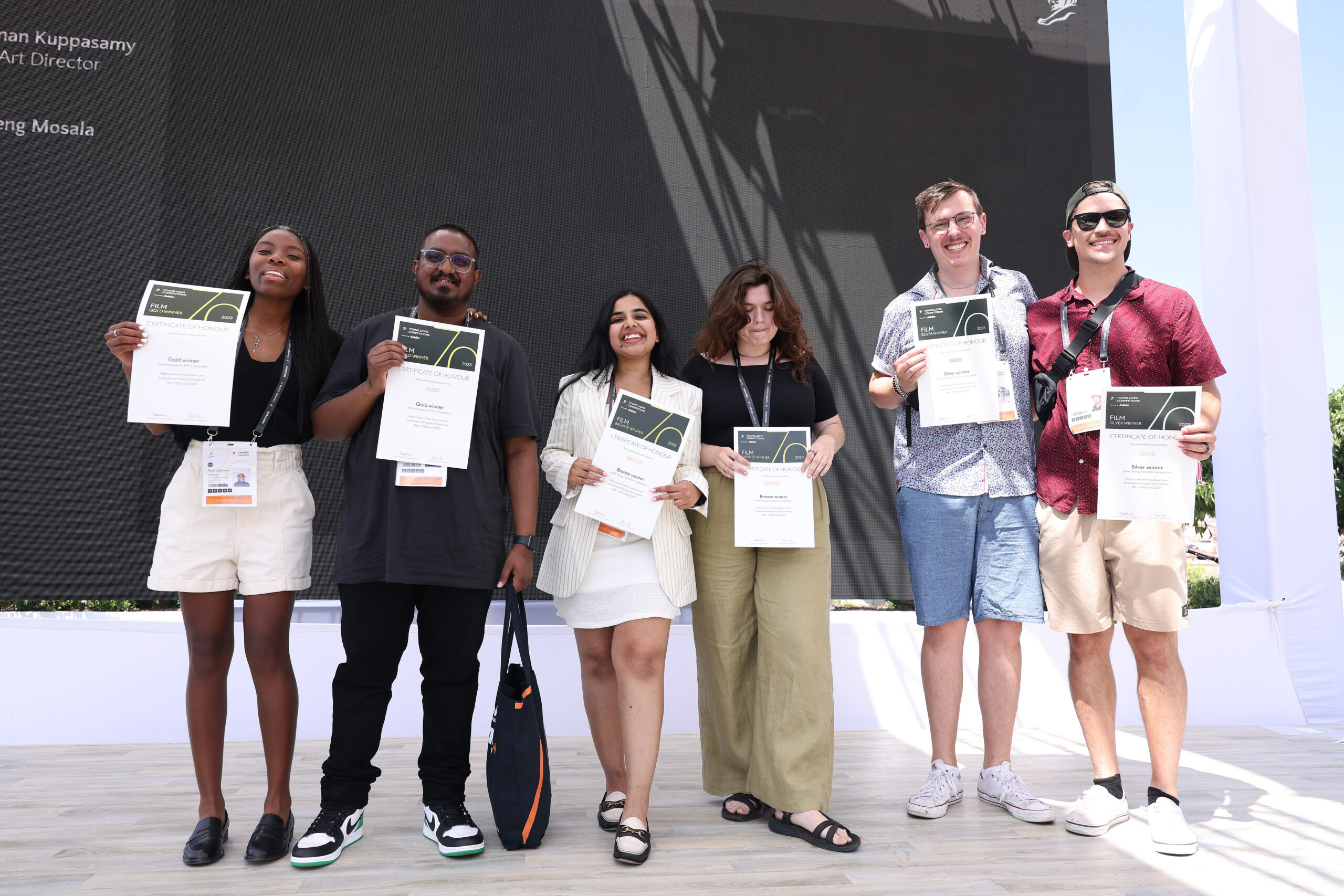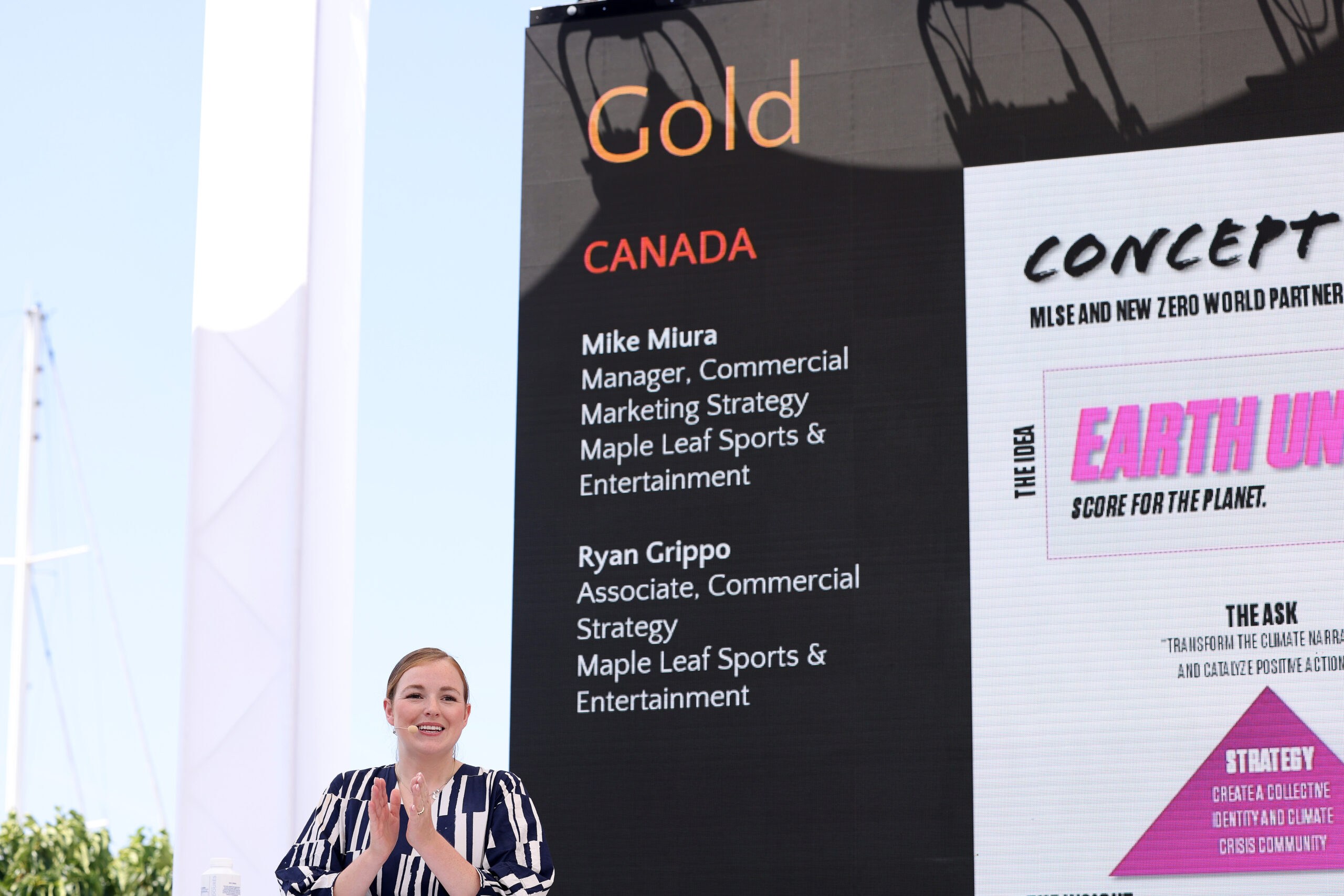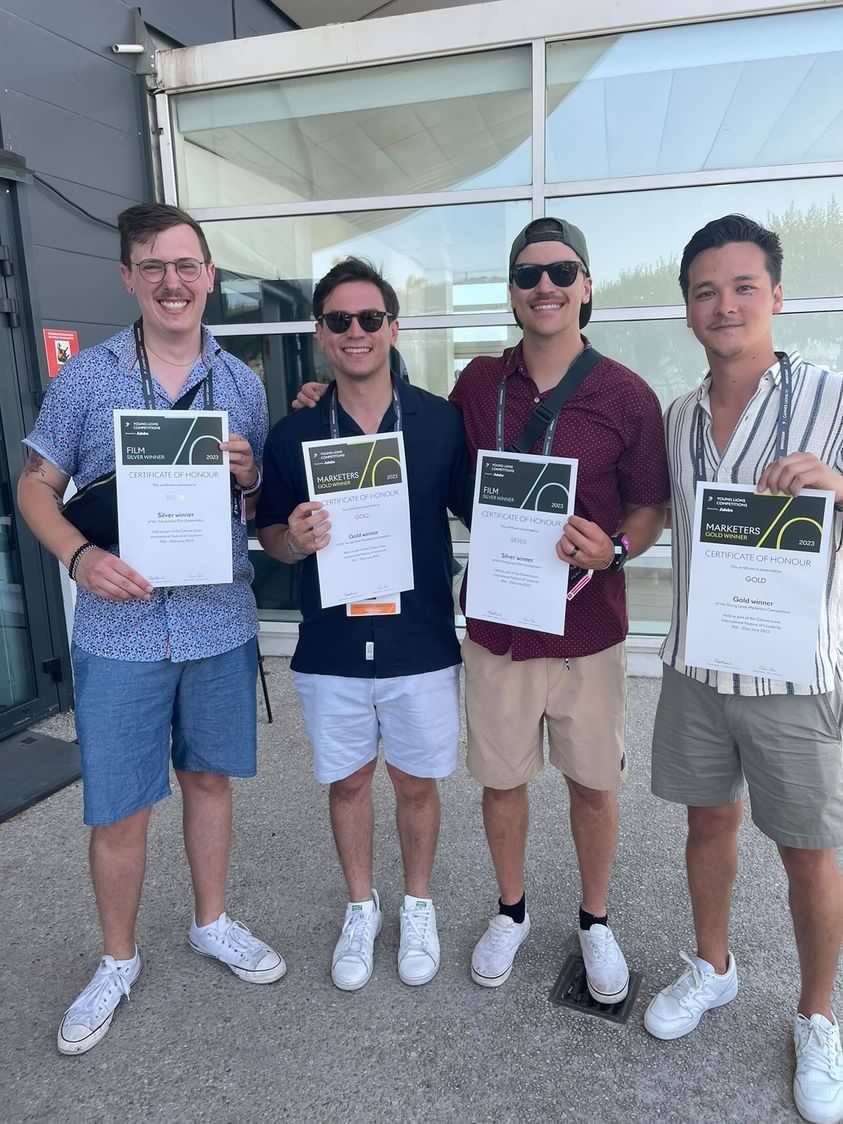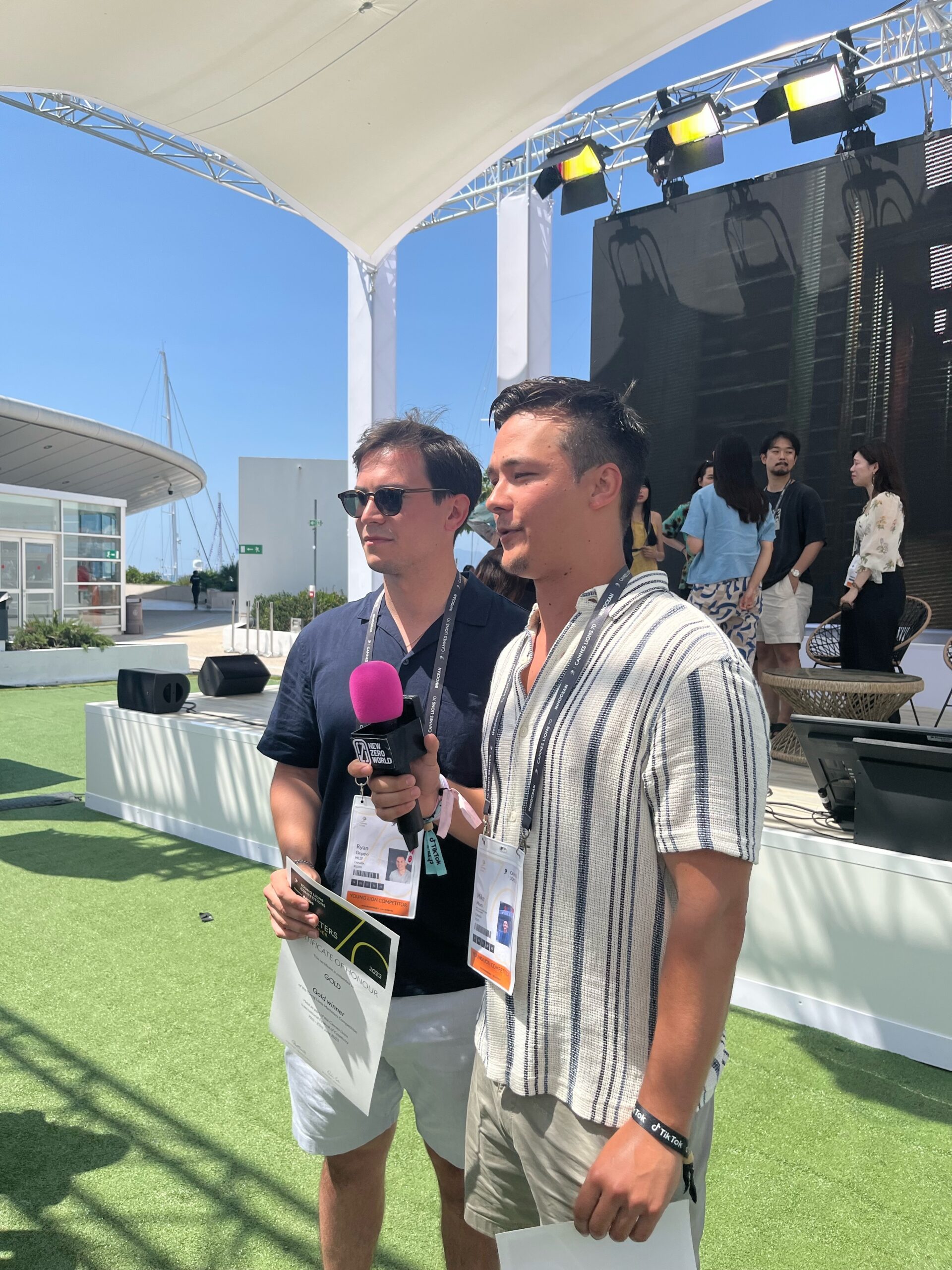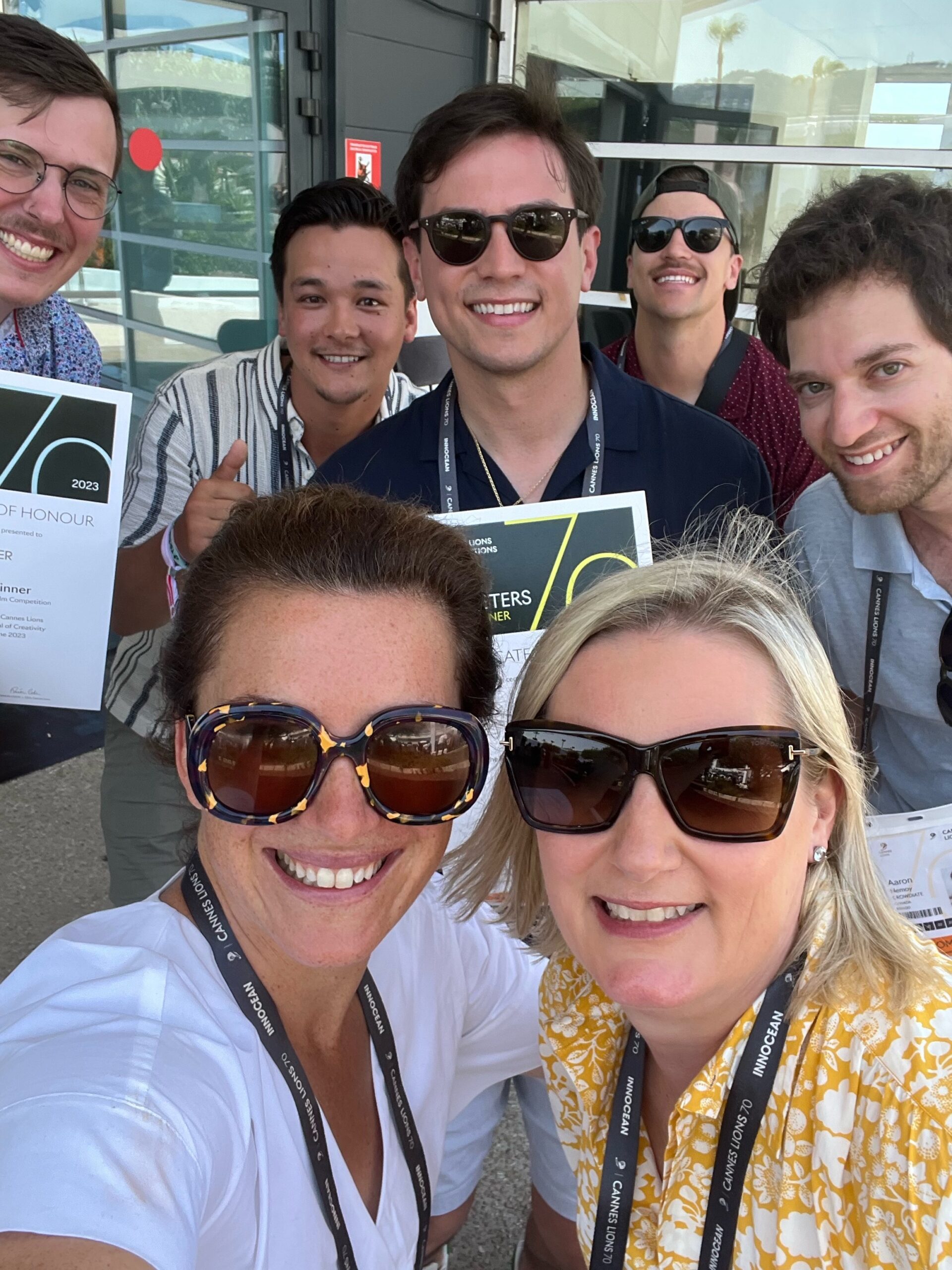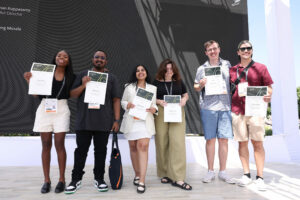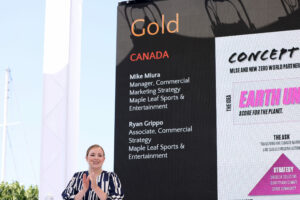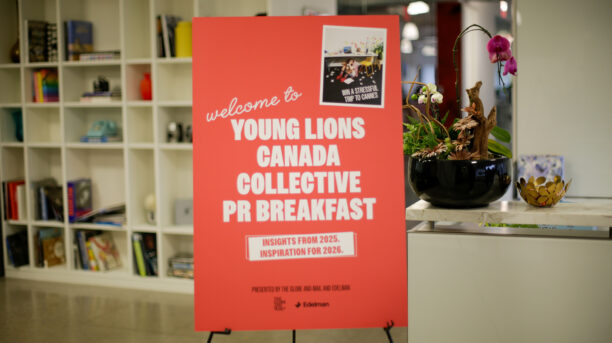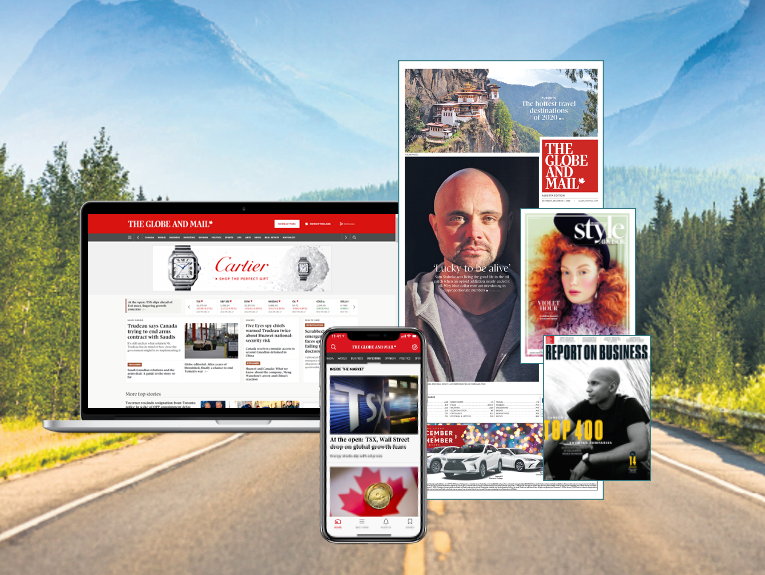As the awards pour in, Canada’s presence at this global event reaches new heights.
What a week it’s been for Canadians, especially the incredible Young Lions who took Gold and Silver in the marketing and film categories. Canada is poised for its best year yet at Cannes Lions, solidifying our reputation as a creative powerhouse in the industry.
In 24-hour challenges, MLSE’s Mike Miura and Ryan Grippo (marketing) and Cory Hansen and Anthony Curran (film) showcased their brilliance, racing against time to craft innovative concepts. Their goals? To prompt action against the climate crisis and raise awareness of an educational startup while aligning the campaigns to their brand’s objectives.
Marketers strike gold with sports-based solution
According to strategy, the gold-winning duo formulated their idea within a mere 8 hours and devoted the following 15 hours to crafting a comprehensive presentation that would resonate with the jury.
In response to a brief from New Zero World, an environmental charity striving to prompt the public to take concrete actions in the battle against climate change, Miura and Grippo opted for a solution that aimed to make it “more accessible for people to do something small, but with big impact,” as Grippo expressed.
Drawing on their ties to MLSE, an organization renowned for creating successful sports teams like the Toronto Raptors and the Maple Leafs, their approach involved establishing an entirely new brand resembling a sports team, providing fans with a relatable entity to rally behind.
To bring their vision to life, they developed multiple assets, including jerseys and a social media campaign, for the newly conceived team named Earth United.
Miura says, “We leaned into the tension and this insight that everybody wants to make a change, but when you do it alone, it doesn’t feel like you can move the needle.” Recognizing MLSE’s ability to foster unity and community through sports, they assembled the world’s largest team, accessible to everyone, to engage in the critical match against the climate crisis.
Beyond the fans, their vision encompassed enlisting notable players like Pascal Siakam and celebrities like Drake, who would commit to participating in the fight against climate change. Additionally, they envisioned a digital platform where individuals who pledged their support could interact with the community, participating in gamified climate challenges.
Grippo further emphasized, “I think ‘inspiring by sport’ is something that people understand. They understand the idea of team sport.” The marketers believed that the campaign resonated with the jury due to its potential for longevity. Instead of presenting a brief and transient campaign, they underscored the notion of building a lasting asset around the concept of “team united,” which could be amplified through various tactics for years to come, as Miura stated.
Film that empowers parents takes second place
Cory Hansen and Anthony Curran wasted no time in devising a winning idea for the Young Lions film category. Once the concept took shape, the Milestone Integrating Marketing writer and designer dove into the intricate execution process.
“We quickly decided to go with the idea because we knew it would take quite a bit of time to do,” Curran told strategy.
The duo tackled a brief from Rocket Learning, an Indian childhood education startup that offers parents bite-sized activities to teach their kids fundamental skills like counting and colors.
Rocket Learning faced the challenge of persuading parents to sign up for their program, which utilized WhatsApp, India’s most downloaded app, to deliver at-home learning activities.
Recognizing that many parents lacked confidence due to limited education, Curran explained, “There wasn’t a hard CTA or anything like that, but Rocket Learning wanted to communicate that ‘hey parents, you can teach your kid at home—it’s really easy.'”
Their solution aimed to empower parents by using abstract objects in an animated spot, avoiding specific references to India to maintain a global appeal.
“One of the points in the brief was that even though this is localized to India, the company wanted to keep it very global because it could be applicable to anyone in the world,” Curran shared. The film depicted a child and their parent, their heads filled with diverse shapes. As the parent received a Rocket Learning activity notification, they passed along an object from their brain to their child, repeating the process until the child’s head became a completed puzzle.
Curran added, “I think what resonated with the judges is that as you think about it and as you watch the spot, you reflect on your own life. You can see who we are and how we’ve all been developed through this process of learning.”
Katherine Scarrow

